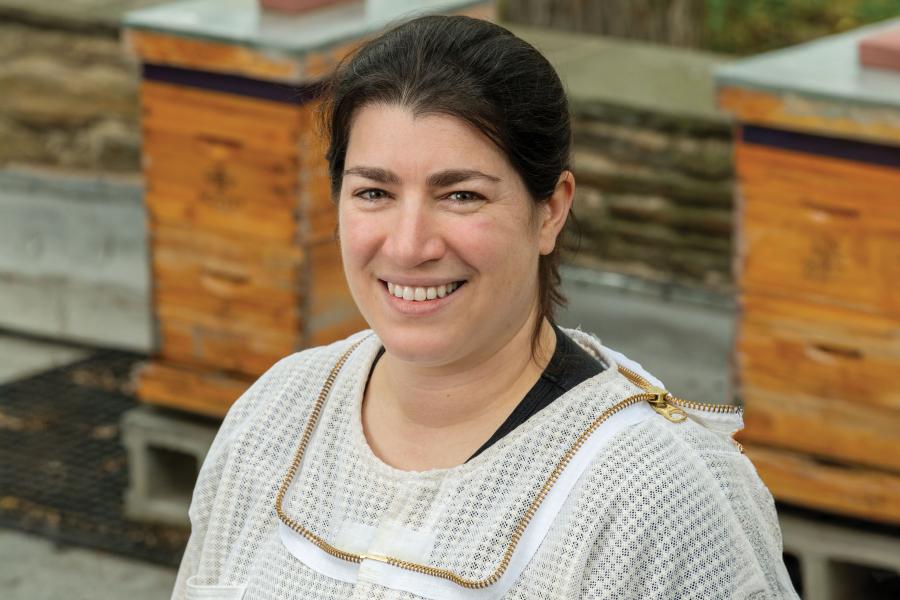This story originally appeared in the Spring 2024 issue of Arts and Sciences Magazine.
"Spring comes earlier than you think," says Johns Hopkins University sociologist Julia Burdick-Will, who is in her third year keeping bees in a set of hives on the roof of her garage. The hobby has made her pay closer attention to things like when the daffodils and dandelions appear, because she's learned they signal that it's time to add space inside the hives to prevent a swarm.
Burdick-Will, associate professor in the Department of Sociology, says beekeeping was a natural progression for her family once they moved from an apartment to their house, got chickens, and planted a big garden. One online class, several how-to books, and countless dinner-table quizzes later, they realized it's harder than it looks, but fun to figure out.
Beekeepers spend a lot of time inspecting their hives to make sure they look healthy and to check for eggs. The process is surprisingly intense and meditative, Burdick-Will says. "There's a focus that I find really nice, in contrast to a busy day. You have to clear your mind; you can't think about anything else for half an hour or so."
Last year, she and her two children—ages 7 and 10—harvested more than 100 pounds of honey. "It tastes really different depending on when you harvest it," she says. "May honey is really different from September honey or August honey; it's a different color, it's a different taste. It's fun to test it out."
View this post on Instagram
Posted in Arts+Culture
Tagged sociology, krieger school








